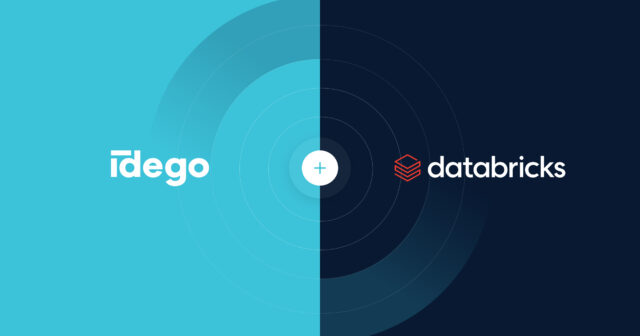
Due to its simple syntax and high expressiveness, Python is extremely popular among developers and is often the technology of choice when implementing a wide variety of web applications. An important decision, which should be made already at the stage of planning the development of such an application, is the choice of an appropriate framework. Many developers rely on Django, but there is no shortage of supporters of Flask. How are they different and which one is better? What to look for when making a choice?
Top Python frameworks you can choose from
While using a framework when developing a web application in Python is not necessary, it is certainly recommended. Why? As the framework provides many useful features and components so that developers do not need to reinvent the wheel and create everything from scratch. As a result, they significantly reduce the time of project implementation and, consequently, related costs. In the case of small projects, the benefits of using frameworks are not too big, but as the project grows in complexity, they start to play a more and more important role and translate directly into tangible benefits.
When deciding to implement a web application in Python, you will have at least a few different options to choose from, including:
● Django;
● Flask;
● Pyramid;
● CherryPy;
● Grok;
● TurboGears;
● Web2Py
● Bottle;
● Tornado.
Each has its own advantages and disadvantages and each works better or worse in specific types of projects. It is important not to leave the decision on the choice of framework to chance but to adapt it to the needs of the given project. This caution will undoubtedly bring the greatest benefits and additionally help you avoid unnecessary costs.
Flask vs Django. And the winner is…?
Django and Flask are probably the two most popular and sought-after frameworks today, so it is very likely that these will be the two choices you will be taking into consideration. Which one is better? It all depends on the category in which you consider the superiority of one over the other.
Django works better for large-scale projects, and those that plan to scale in size as the number of users grows in the future. For this reason, it is chosen more often. Many projects – at least in their strategy – assume a large scale of operation, or at the very minimum reaching a considerable level of operations in the long term. By choosing Django, in a way, you are preparing the foundation for the dynamic growth of your web application.
Of course, there are many more advantages to Django and they largely relate to performance issues and the ability to handle the day-to-day processing of immense volumes of data and user interactions. Django’s most frequently cited strengths include:
Speed of deployment
Large web applications, in general, are very complex and offer a great range of functionality. By choosing Django as your framework, you can expect a significant reduction in implementation time. This is facilitated, on the one hand, by a simple syntax and, on the other, by dozens of add-ons and packages that allow programmers to focus on the parts of the code that require individual attention.
Versatility
Business needs may vary, but Django has proven to be able to effectively meet them all, whether you are planning to build a social network, a corporate application to support planning and business management, or an e-commerce platform.
Security
Another reason why you might choose Django are the high standards associated with ensuring the security of your web application’s operation. The framework effectively deals with common problems, including, for example, inter-site query forgery and clickjacking.
Flask is classified as a micro-framework, characterized by little to no dependencies between external libraries. It is simple, flexible and provides granular control – allowing you to decide for yourself how to implement the various elements. In other words – Flask implements only the minimum necessary, leaving the developer full freedom to choose add-ons and modules.
When implementing a project that requires more flexibility and control over the components used, you should consider using Flask. However, if the project does not report such needs, Django will probably prove to be a more reasonable choice. However, you must remember that the choice will never be so clear-cut – it requires a thorough analysis and consideration of many important factors, described in more detail later in this article.
Big companies and their framework selections – who uses what?
Flask, despite the fact that it works well for small ventures, is kept by many large and well-known corporations in its technology stack. We are talking about entities such as Netflix, Zalando, Reddit, Airbnb, Mozilla, Uber and Samsung.
Due to its versatility and high scalability, Django is perfect for large and complex projects, as well as those that intend to grow dynamically over time and want to be technologically prepared to do so. Given the above, global technology giants are reaching for Django far more often, as the scale of their operations is generally massive. Django was used to create such web applications as Disqus, Instagram, YouTube, Spotify, Pinterest, Mozilla, Dropbox… – the list could go on and on.
For more on Django and the projects where it works best, see: What kinds of projects can Django be used for.
Adjust your decision to your project specification
Guiding the choice of a framework solely by its popularity or the decisions of others will not always be a good idea. It will also be unwise to use a particular framework just because your developers know it well. In many situations, it will be far more sensible to outsource the development of a web application or hire a dedicated team of developers to complete the project in the optimal technology.
In all situations, the framework should be maximally tailored to the needs posed by the project being implemented. After all, every venture has specific business goals to achieve, and the right choice of the framework can greatly accelerate their achievement. For larger projects, complex and more heavily frequented web applications, Django generally performs better. Flask, on the other hand, should be the framework of the first choice for small projects. When deciding which one to choose, be sure to take into account any plans to expand your application. If there is a high probability that a project which is small in the initial phase, has a chance to grow into something much bigger after some time, take it into account already at the stage of choosing a framework. This will save you a lot of time and money.
There are no competencies necessary for you to create the web application you need within your organization? Contact us and let us know what you need. We will suggest the best solution, choose optimal technology and framework and provide a dedicated team of developers who will take care of proper development, implementation and support of your web application.








 Andrzej Kopera • Sep 05
Andrzej Kopera • Sep 05

